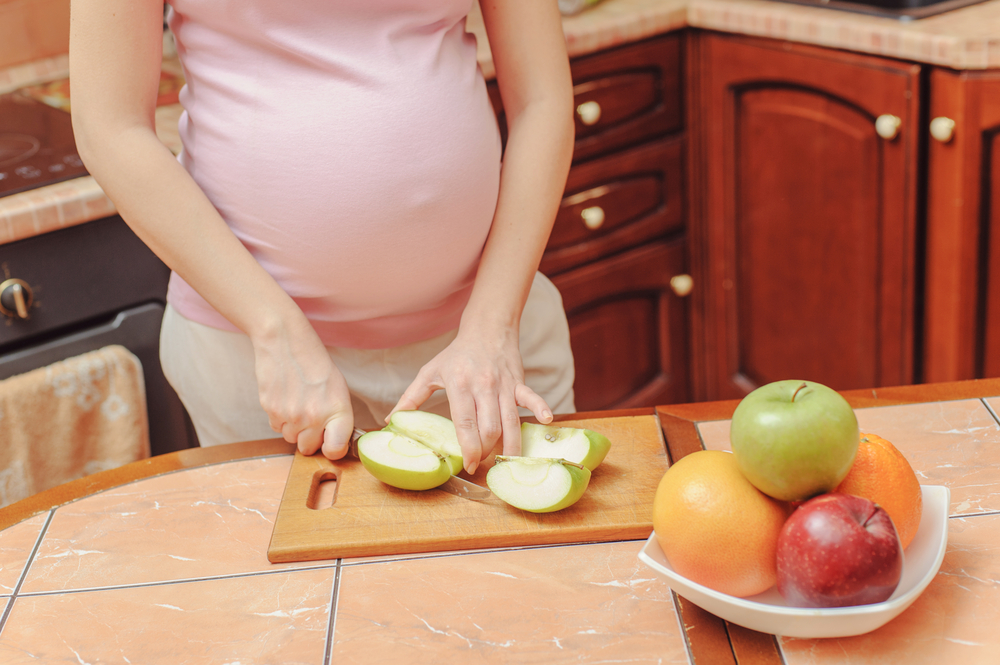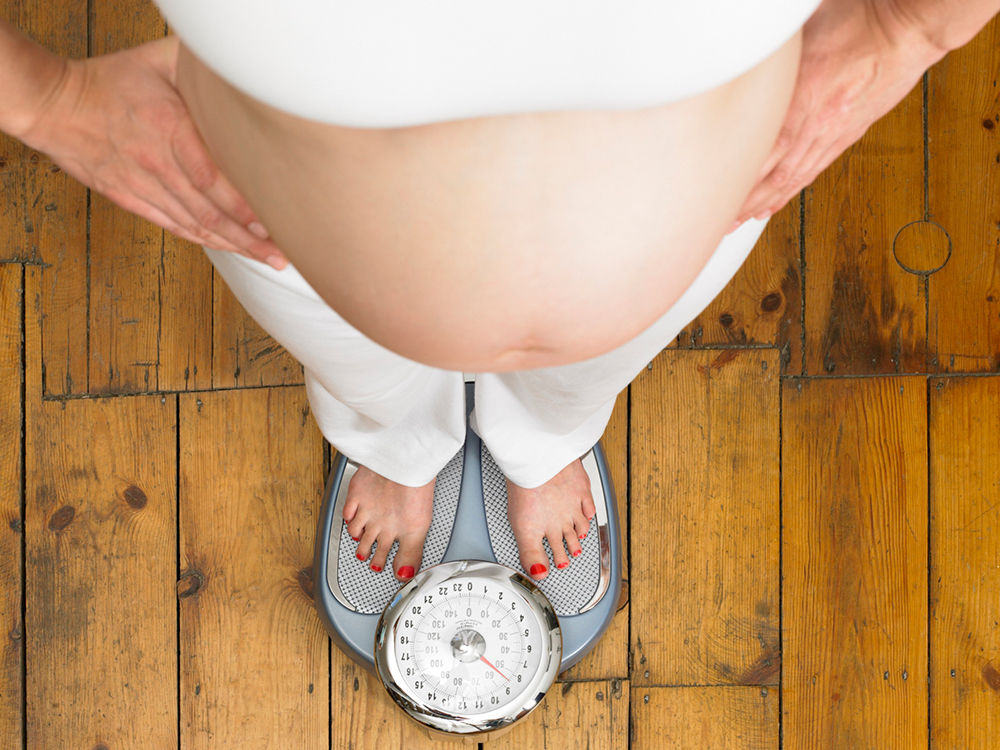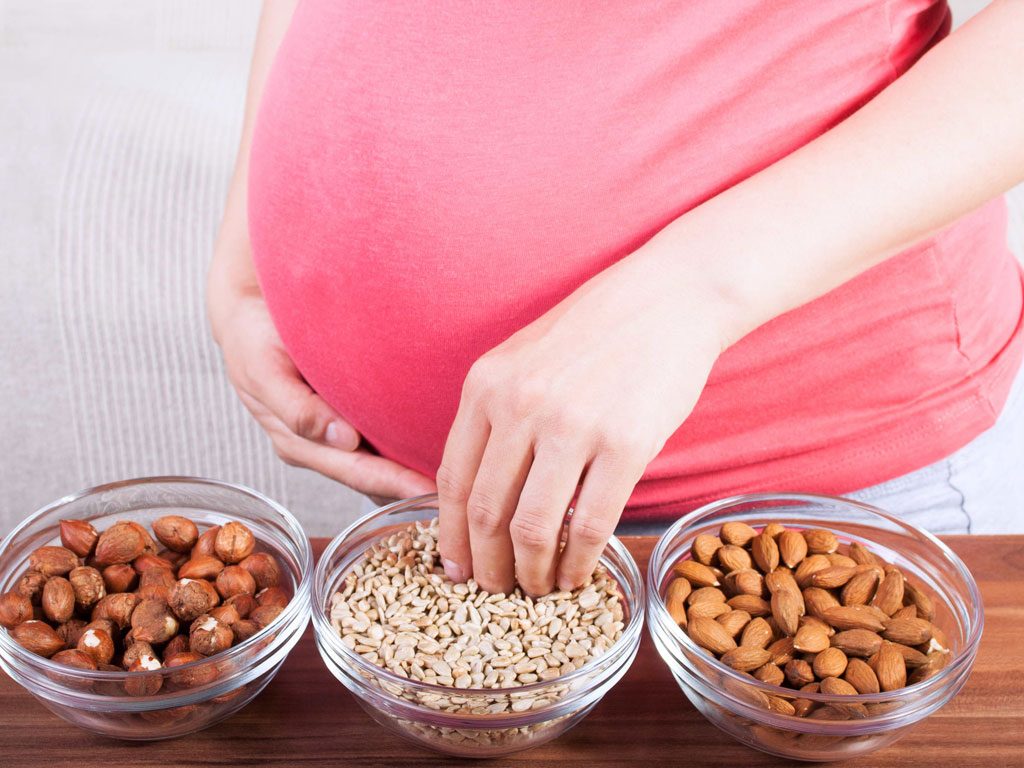Is weight gain important during pregnancy?
Posted By : Ellen

Pregnancy is a time where the expectant mother tends to gain weight throughout the three trimesters, therefore it is important to know the required normal weight during each trimester. Pregnancy weight gain has a direct impact on the health of the mother and the developing baby. Therefore at the beginning of pregnancy, it is necessary to check Body Mass Index (BMI) and continue a healthy weight gain schedule based on that accordingly.
Points to Note
- Gaining too much or too little weight during pregnancy can be harmful to both mother and baby.
- Don’t try to lose weight all of a sudden during pregnancy.
- One needs 300 and more calories a day during pregnancy to support their baby’s growth and development.
- Gaining weight slowly and steadily is best.

Gaining the right amount of weight during pregnancy helps to protect health of both mother and baby. Gaining too little weight during pregnancy may result in premature baby or baby with low birth-weight. A premature baby is whom born too early, before 37 weeks of pregnancy. Weighing less than 5 pounds, 8 ounces leads to low birth-weight baby. Similarly if you gain too much weight during pregnancy, the risks involved could be the following,
- Chances for a premature baby. Premature babies may have health problems at birth and later in life, including being overweight or obese. Being obese means you have an excess amount of body fat.
- Chances for a baby with fetal macrosomia. That is when baby is born weighing more than 8 pounds, 13 ounces. This may result in complications during labor and heavy bleeding after birth.
- In need of cesarean birth (also called C-section). This requires a surgery in which baby is born through a cut either in belly or uterus.
- May lead to lose of weight after the baby’s birth. This increases risk issues in health conditions like diabetes and high blood pressure.
How much weight is advised during pregnancy?
It’s always best to start pregnancy at a healthy weight and this depends on one’s health and body mass index before getting pregnant. BMI is a measure of body fat based on the height and weight of the person and it’s based on this BMI that the health provider advices to either gain or loss weight during pregnancy. Based on BSI, the categories include
- Healthy weight = BMI 18.5 to 24.9
- Underweight = BMI less than 18.5
- Overweight = BMI 25 to 29.9
- Obese = BMI more than 30

Based on whether one is pregnant with single baby or twins, the studies reveal at certain conclusions.
1.Pregnant with single baby
- It is required to gain about 28 to 40 pounds during pregnancy, in case of underweight before pregnancy.
- It is required to gain about 25 to 35 pounds during pregnancy, in case of a healthy weight during pregnancy.
- It is required to gain about 15 to 25 pounds during pregnancy in case of overweight before pregnancy.
- It is required to gain about 11 to 20 pounds during pregnancy in case of obese before pregnancy.
2. Pregnant with twins
- It is required to gain about 37 to 54 pounds during pregnancy, in case of a healthy weight during pregnancy.
- It is required to gain about 31 to 50 pounds during pregnancy in case of overweight before pregnancy.
- It is required to gain about 25 to 42 pounds during pregnancy in case of obese before pregnancy.
Generally, studies reveal that one should gain about 2 to 4 pounds during the first three months of pregnancy and 1 pound a week during the rest of pregnancy. In case of twins, one should gain about 35 to 45 pounds during pregnancy. That is it would be an average of 1 ½ pounds per week after the usual weight gain in the first three months.

It’s always important to gain the right amount of weight when expecting twins because this weight is going to affect the babies’ weight. And because twins are often born before the due date, a higher birth weight is important for their health. While carrying twins, calories between 3,000 and 3,500 a day is necessary.
Where does the weight go during pregnancy?
- Baby = 7.5 pounds
- Amniotic fluid = 2 pounds.
- Blood = 4 pounds
- Body fluids = 4 pounds
- Breasts = 2 pounds
- Fat, protein and other nutrients = 7 pounds
- Placenta = 1.5 pounds.
- Uterus = 2 pounds.
Amniotic fluid is the one which surrounds the baby in the womb. The uterus is the place inside you where your baby grows. The placenta grows in your uterus (also called womb) and supplies the baby with food and oxygen through the umbilical cord.
How to Gain the Right Amount of Weight During Pregnancy

Try these tips if the health advisor advises to gain weight.
- Split main meal into small five to six meals and follow every day.
- Carry easy snacks like nuts, raisins, cheese and crackers, dried fruit, and ice cream or yogurt.
- The use of creamy peanut butter gives you about 100 calories and 7 grams of protein.
- Try to add nonfat powdered milk to mashed potatoes, hot cereal and scrambled eggs.
- Add butter or margarine, cream cheese, gravy, sour cream, and cheese to your meal.




